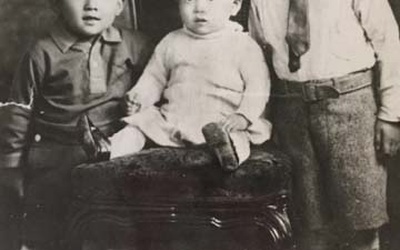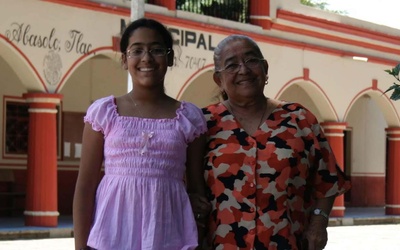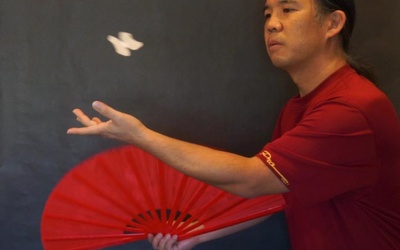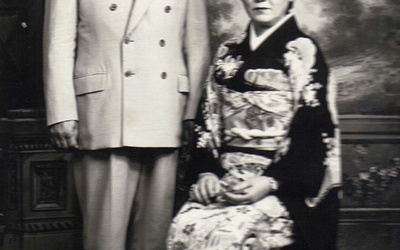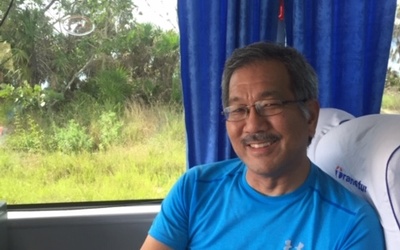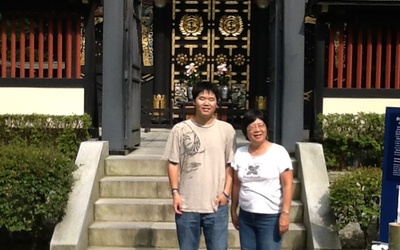Nikkei Chronicles #7—Nikkei Roots: Digging into Our Cultural Heritage
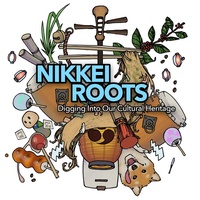
Stories in the Nikkei Chronicles series have explored many of the ways that Nikkei express their unique culture, whether through food, language, family, or tradition. For this edition, we are digging deeper—all the way down to our roots!
We solicited stories from May to September of 2018 and received 35 stories (22 English; 1 Japanese; 8 Spanish; and 4 Portuguese) from individuals in Argentina, Brazil, Canada, Cuba, Japan, Mexico, Peru, and the United States. For this series, we asked our Nima-kai community to vote for their favorite stories and an editorial committee to pick their favorites. In total, four favorite stories were selected.
Here are the selected favorite stories.
Editorial Committee’s Selections:
- ENGLISH:
Sharing Heart Beats
By Mori Walts
- JAPANESE:
The Tea of Soul from Aizuwakamatsu Revived After 150 Years
By Nao Magami
- SPANISH:
The Japan Inside Me
By Akemi Figueredo Imamura
- PORTUGUESE:
Crossing the World
By Heriete Setsuko Shimabukuro Takeda
Nima-kai selection:
- 27 stars:
The Mochitsuki Tradition in the Hikari Group of Londrina, Paraná
By Alba Shioco Hino, Nilza Matiko Iwakura Okano, Kiyomi Nakanishi Yamada
Stories from this series
Pictures and Poetry: Deepening the Connection to my Japanese Roots
Oct. 26, 2018 • Nancy Matsumoto
Growing up Sansei in my part of California’s San Gabriel Valley meant you didn’t have to work very hard to stay connected to your Nikkei roots—they were all around you. Every family that lived on our South San Gabriel street was Japanese American. We shared Japanese food, holidays, and a mania for gift giving. Our most exotic neighbors were from Okinawa, which as a child I took to be a country separate from Japan. Our local Issei “fish man” would …
Letters from Miyako - Being Nikkei in Veracruz
Oct. 25, 2018 • Jumko Ogata Aguilar
My name is Jumko Ogata and until about a year ago I didn’t know the term Nikkei. Since I was a child, my grandmother had told me stories about her father, an immigrant named Jimpei Ogata (when he was baptized as a Catholic, he added the name Mariano), who came to Mexico to work in the coal mines. But because of his daily experience of inhuman conditions deep inside the earth, he decided to escape in search of a better life. After …
Magic, the Nikkei Way
Oct. 24, 2018 • David Hirata
Since the age of ten I’ve been a magician. I spent many hours during my childhood wearing a top hat and cape, waving a wand and brandishing a deck of cards. I’ve long since abandoned those Victorian accoutrements but have continued to work sleight of hand amusements for audiences in hotel banquet halls, living rooms, and theaters. As in other art forms, the world of magic looks to master practitioners of its past. The magic inventions of these past masters …
If you fall down seven times, stand up eight times
Oct. 23, 2018 • Noriko Takey Yagi
I remember I was playing after a carefully prepared lunch, when my okasan came up and touched my shoulder: “Do you see that man over there? “He is going to be your husband.” I thought he was handsome. Your ojichan was a wonderful man, he fell several times but always had the strength and courage to get up and reinvent himself. A man of honor, descendant of samurai and one of the few Japanese of his time to obtain a …
Hometowns
Oct. 22, 2018 • Dean Okamura
I wanted to walk where my grandparents, Hikosaburo Okamura and Tsuru Uyeta, walked. In the early 1900s, they left Japan and came to America. I did not speak Japanese. My grandparents did not speak English. I remembered no stories about their lives in Japan. There is a Japanese song, Furusato by Angela Aki, which says: “Home is always calling out my name.” If I visited their Hometowns, would they call out my name? The unprepared visitor One month before my Japan …
Meeting the Kumamoto Relatives
Oct. 19, 2018 • Edna Horiuchi
My first trip to Japan was in the summer of 2016. I was very nervous about meeting my recently-discovered Minami relatives, on my dad's mother's side. What if I didn't like them or if they didn't like us? I brought a whole suitcase of gifts or omiyage, carefully selected from Trader Joe's. I was visiting my son, Kenzo, who was doing a semester of study abroad during his junior year at U.C. Berkeley. The last time we had traveled together …

